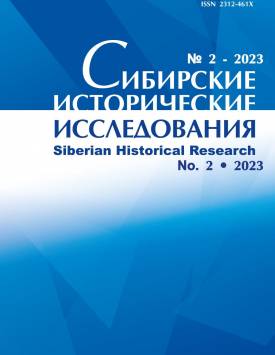Coronaphobia, infodemic and fakes during COVID-19
The COVID-19 outbreak has brought a lot of uncertainty and fear into the lives of people around the world. In many countries the level of anxiety has increased greatly, based on the fear of contracting a new virus and the uncertainty of the consequences of infection, the many fakes and the lack of reliable information, distrust of the government or the measures taken. This article provides an overview of studies on the infodemic and coronaphobia associated with the spread of COVID-19, using our own data from different countries. An increase in fear and panic driven by prejudice or misinformation has provoked discrimination and stigmatization of the disease, as well as led to obstacles to the implementation of rapid response policies by health authorities and social policy. Scientists are trying to counter this influx of misinformation related to the COVID-19 pandemic. Preparing people for disinformation and providing them with accurate information and counterarguments against false reports before they are exposed to conspiracy theories, fake news, or other forms of disinformation can help manage phobias and fears and maintain mental health.
Keywords
COVID-19,
pandemic,
anxiety,
infodemic,
coronaphobia,
fakesAuthors
| Burkova Valentina N. | Institute of Ethnology and Anthropology, Russian Academy of Sciences; National Research University “Higher School of Economics” | burkovav@gmail.com |
| Butovskaya Marina L. | Institute of Ethnology and Anthropology, Russian Academy of Sciences; National Research University “Higher School of Economics” | marina.butovskaya@gmail.com |
Всего: 2
References
Архипова А.С. Берегись покемонов: символическое сопротивление новой медицинской реальности в российских социальных сетях // Неприкосновенный запас. 2021. № 06 (140). С. 97-125.
Архипова А.С., Радченко Д.А., Козлова И.В., Пейгин Б.С., Гаврилова М.В., Петров Н.В. Пути российской инфодемии: от WhatsApp до Следственного комитета // Мониторинг общественного мнения: экономические и социальные перемены. 2020. № 6. С. 4-38.
Буркова В.Н., Бутовская М.Л., Ермаков А.М. От первой к третьей волне COVID-19: динамика тревожного поведения в крупных городах России (Москва и Ростов-на-Дону) // Этнографическое обозрение, 2023 (в печати).
Крюкова Н.В., Адам Ю.И. Очуждение и очуждаемые в Рунете в первую "волну" пандемии COVID-19 // Этнографическое обозрение. 2022. № 5. С. 187-210.
Макушева М., Нестик Т., Орлова Е., Фирсов А. Исследование социальных эффектов пандемии COVID-19 // Сводка № 12. URL: https://pltf.ru/wp-content/ uploads/2020/05/svodka-12.pdf (дата обращения: 26.05.2020).
Макушева М., Орлова Е., Фирсов А., Шашкин А. Исследование социальных эффектов пандемии COVID-19 // Сводка № 6. URL: https://pltf.ru/2020/04/17/omi-i-platforma-socialnye-jeffekty-pandemii/ (дата обращения: 17.04.2020).
Степанцов П., Вилейкис А. Коронавирус и общество. Как россияне реагируют на эпидемию // Нож. 2020. URL: https://knife.media/corona-sociology-1/ (дата обращения: 01.04.2020).
Феденок Ю.Н., Буркова В.Н. Социальное дистанцирование как альтруизм в условиях пандемии коронавируса: кросс-культурное исследование // Сибирские исторические исследования. 2020. № 2. C. 6-40.
Abuhammad S., Alzoubi K.H., Khabour O. Fear of COVID-19 and stigmatization towards infected people among Jordanian people // Int. J. Clin. Pract. 2021. Vol. 75, No. e13899.
Arora A., Jha A.K., Alat P., Das S.S. Understanding coronaphobia // Asian J Psychiatr. 2020. Vol. 54, No. 102384.
Asmundson G.J.G., Taylor S. Coronaphobia: Fear and the 2019-nCoV outbreak // Journal of Anxiety Disorders. 2020. Vol. 70, No. 102196.
Brailovskaia J., Margraf J., Schneider S. SocialMedia as Source of Information, Stress Symptoms, and Burden Caused by Coronavirus (COVID-19) // European Psychologist. 2022. Vol. 26 (4). P. 373-386.
Brooks S.K., Webster R.K., Smith L.E., Woodland L., Wessely S., Greenberg N. et al. The psychological impact of quarantine and how to reduce it: rapid review of the evidence // Lancet. 2020. Vol. 395. P. 912-920. 10.1016/S0140-6736(20) 30460-8.
Burkova V.N., Butovskaya M.L., Randall A.K., Fedenok J.N. et al. Predictors of Anxiety in the COVID-19 Pandemic from a Global Perspective: Data from 23 Countries // Sustainability. 2021. Vol. 13, No. 4017.
Burkova V.N., Butovskaya M.L., Randall A.K., Fedenok J.N., Ahmadi K. et al. Factors Associated With Highest Symptoms of Anxiety During COVID-19: Cross-Cultural Study of 23 Countries // Frontiers in Psychology. 2022. Vol. 13, No. 805586.
Chui A. Trump has no Qualms about Calling Coronavirus the 'Chinese Virus'. That's a Dangerous Attitude, Experts Say // The Washington Post. Washington, D.C, 2020.
Cornwall W. Officials gird for a war on vaccine misinformation // Science. 2020. Vol. 369. P. 14-15.
Crawford R. The Boundaries of the Self and the Unhealthy Other' Reflections on Health, Culture and AIDS // Social Science & Medicine. 1994. Vol. 38, No. 10. P. 1347-1365.
Dai D. Three in four adults globally say they'd get a vaccine for COVID-19 - but is this enough? // WEF. 2020.
Dryhurst S., Schneider C.R., Kerr J., Freeman A.L.J., Recchia G. et al. Risk perceptions of COVID-19 around the world //j. Risk Res. 2020. Р. 1-13.
Dore B. Covid-19: Collateral damage of lockdown in India // BMJ. 2020. Vol. 369, No. m1711.
Eichelberger L. SARS and New York's Chinatown: The Politics of Risk and Blame During an Epidemic of Fear // Social Science & Medicine. 2007. Vol. 65. P. 1284-1295.
Feyissa G.T., Lockwood C., Woldie M., Munn Z. Reducing HIV-related stigma and discrimination in healthcare settings: A systematic review of quantitative evidence // PLoS One. 2019. Vol. 14, No. e0211298.
Freeman D., Waite F., Rosebrock L., Petit A. Coronavirus Conspiracy Beliefs, Mistrust, and Compliance with Government Guidelines in England // Psychological Medicine. 2020. Vol. 52 (2). P. 251-263.
Germani F., Biller-Andorno N. The Anti-Vaccination Infodemic on SocialMedia: A Behavioral Analysis // PLoS ONE. 2021. Vol. 16, No. 3.
Han P.K., Zikmund-Fisher B.J., Duarte C.W., Knaus M., Black A. et al.Communication of scientific uncertainty about a novel pandemic health threat: ambiguity aversion and its mechanisms //j. Health Commun. 2018. Vol. 23. Р. 435-444.
Hofstede G. Dimensionalizing cultures: The Hofstede model in context. Online Read // Psychol. Cult. (ORPC). 2011. Vol. 2. P. 3-26.
Joffe H. Risk and ‘the Other'. Cambridge; N.Y.: Cambridge University Press, 1999.
Kar D., Bhardwaj M., Samanta S., Azad A.P. No rumours please! A multi-indic-lingual approach for covid fake-tweet detection // arXiv. 2010. No. 06906 (2020).

